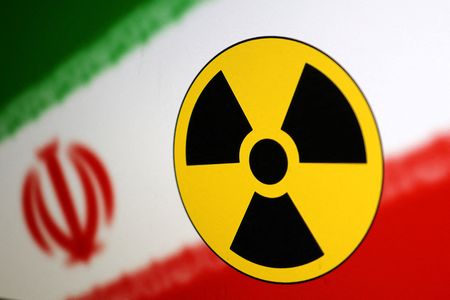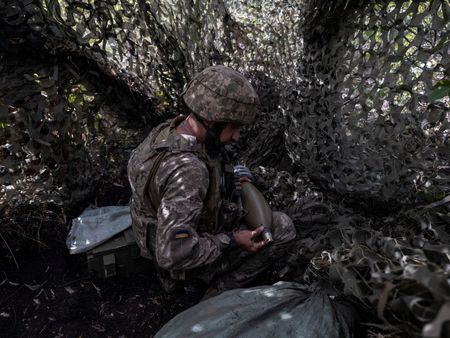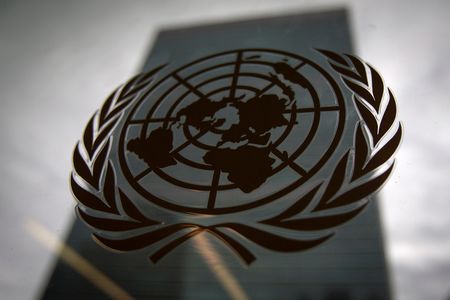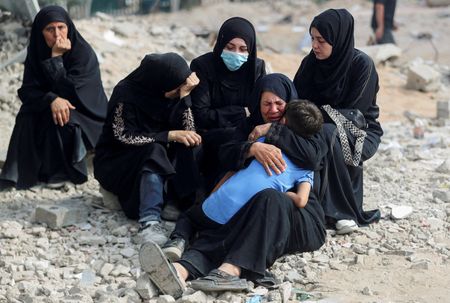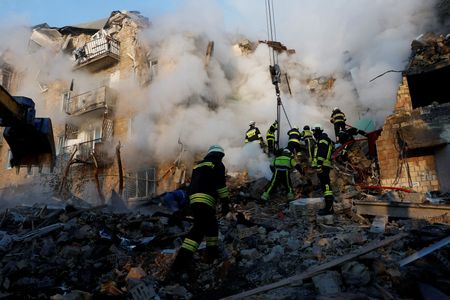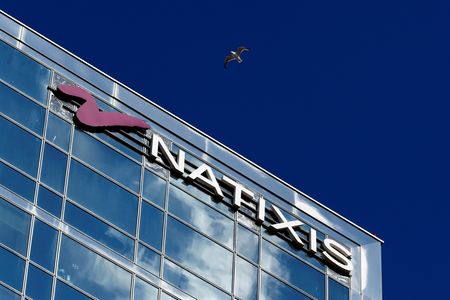By Michelle Nichols
UNITED NATIONS (Reuters) -Britain, France and Germany launched a 30-day process to reimpose U.N. sanctions on Iran over its nuclear programme on Thursday, according to a letter sent by the three nations to the U.N. Security Council seen by Reuters.
The trio, known as the E3, has taken the step over accusations Iran has failed to abide by a 2015 deal with world powers that aimed to prevent it from developing a nuclear weapon.
WHAT IS THE 2015 IRAN NUCLEAR DEAL?
Many countries have suspected Iran of pursuing nuclear weapons, which Iran denies.
Iran reached a deal in 2015 with Britain, Germany, France, the U.S., Russia, and China – known as the Joint Comprehensive Plan of Action (JCPOA) – that lifted U.N., U.S. and European sanctions on Tehran in return for curbs on its nuclear program.
The U.N. Security Council enshrined the deal in a resolution in July 2015. That resolution – and the ability of any parties to the nuclear deal to trigger a “snapback” of sanctions on Iran – is due to expire on October 18.
WHAT IS SNAPBACK?
Under the 2015 agreement, there is a process known as snapback that would reimpose U.N. sanctions on Iran.
If the parties cannot resolve accusations of “significant non-performance” by Iran, this process can be triggered at the 15-member U.N. Security Council.
Now that the process has been initiated, the Security Council must vote within 30 days on a resolution to continue Iran’s sanctions relief, requiring at least nine votes in favor and no vetoes by the United States, Russia, China, Britain, or France to pass.
Such a resolution is destined to fail. If nine or more council members vote in favor of extending sanctions relief, Britain and France could use their veto to block the resolution.
All U.N. sanctions on Iran will be reimposed in late September – 30 days after the snapback process was triggered – unless the Security Council takes other action.
WHAT SANCTIONS WOULD BE REIMPOSED?
Under snapback, measures imposed by the Security Council on Iran in six resolutions from 2006 to 2010 will be restored.
These include:
– An arms embargo
– A ban on uranium enrichment and reprocessing
– A ban on launches and other activities with ballistic missiles capable of delivering nuclear weapons, as well as ballistic missile technology transfer and technical assistance
– A targeted global asset freeze and travel ban on Iranian individuals and entities
– Authorization for countries to inspect Iran Air Cargo and Islamic Republic of Iran Shipping Lines cargoes for banned goods
COULD A SNAPBACK OF SANCTIONS STILL BE AVOIDED?
France, Britain, and Germany have offered to extend the snapback mechanism for a limited time.
“Such an extension would be granted to provide additional time for negotiations with the aim of concluding a new agreement, while maintaining the possibility of resorting to the reestablishment of relevant sanctions against Iran to prevent nuclear proliferation,” they wrote in a letter to the Security Council this month.
If Iran agreed, the Security Council would have to adopt a new resolution.
In an unexpected move, Russia and China circulated a draft resolution to the Security Council on Sunday that would extend the nuclear deal until April 18, 2026. However, their text includes language that a senior Russian diplomat, speaking on condition of anonymity, told Reuters would block the E3 from reimposing U.N. sanctions on Iran. It was not immediately clear when the draft resolution could be put to a vote.
WHAT IS THE U.S. ROLE IN THE NUCLEAR DEAL?
Calling it “the worst deal ever,” U.S. President Donald Trump quit the nuclear pact in 2018, during his first term, and restored all U.S. sanctions on Tehran. In response, Iran began moving away from its nuclear-related commitments under the accord.
In February, Trump restored a “maximum pressure” campaign on Iran and backed a snapback of U.N. sanctions. He has said he is open to a deal but has also threatened to use military force if Iran did not agree to end its nuclear program.
WHAT IS IRAN DOING?
The 2015 nuclear deal said Iran would treat any reinstatement of sanctions “as grounds to cease performing its commitments “under this JCPOA in whole or in part.”
The U.N. nuclear watchdog – the International Atomic Energy Agency – has said Iran is “dramatically” accelerating enrichment of uranium to up to 60% purity, close to the roughly 90% weapons-grade level.
Western countries say there is no need to enrich uranium to such a high level for civilian uses and that no other country has done so without producing nuclear bombs. Iran says its nuclear program is peaceful.
WHAT IS THE POSITION OF IRAN’S STRATEGIC ALLIES RUSSIA AND CHINA?
Russia and China argue that Germany, France, and Britain have not followed the dispute resolution process outlined in the nuclear deal. The three European countries disagree.
Russia and China say Germany, France, and Britain are unable to trigger a snapback of U.N. sanctions because they have not stuck to their own obligations under the 2015 nuclear deal.
While Russia and China are Security Council veto powers, they cannot prevent a reimposition of U.N. sanctions on Iran. They can, however, decide not to implement the sanctions and veto any Security Council attempts to punish them for doing so.
WHY ARE THE U.S. AND IRAN NOT TALKING?
Indirect talks between Tehran and the administration of Trump’s successor, Joe Biden, failed to make progress.
Since April, Iran and the U.S. have held indirect talks aimed at finding a new diplomatic solution regarding Iran’s nuclear program. The U.S. wants to ensure Iran cannot build a nuclear weapon.
Those talks were suspended after Israel and the U.S. bombed Iran’s nuclear and ballistic missile facilities in June.
(Reporting by Michelle NicholsEditing by Rod Nickel and Ros Russell)

